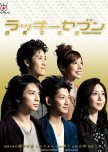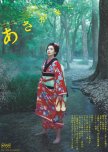

Both dramas show the business career development of young people, how creativity and prioritizing people in business is what creates real economic success. Much of the drama is also focused on the loyal friendships of the main characters. Whereas Akira to Akira doesn't have any comedic elements, and is specifically set in the banking world, if you enjoy it you'll likely enjoy HOPE, which has a similar progressive storyline.


Both are about banking, and black sheep protagonists whose philosophy is that banking is about people rather than just money. Both show the drama of what is behind a loan, and how it ultimately impacts lives and the overall economy, although Hanzawa Naoki is far more suspenseful.


Eita stars in both comedies featuring a ragtag detective agency headed by an female chief, and the detectives often get involved in their client's lives to solve their problems.


Both are remakes of popular Hollywood investigative/crime TV series; Cold Case follows the plotlines more closely, although stories are fitted to a Japanese context.


Written by the same screenwriter, they both share an well-paced, well-written script with incredibly witty dialog, lovable average-yet-quirky characters, and a delightfully awkward romance that blooms into something rather adorable.
Both have similar elements, with a rogue tabloid (funded by a gangster boss) along with a driven female law enforcement character going up against a large paper (with a corrupt boss) to uncover a larger conspiracy; both are about how media shapes pubic opinion and the moral dilemmas that go with reporting. (But Hero is way better written/acted, and for being made 8 years earlier, way less cliche!)


The faster-paced Japanese remake of Misaeng follows a similar arc and has many similar relationships, but has a different tone and its own context and soul. It's funny and inspiring and fits perfectly into the light Japanese business drama mold without being predictable. I wouldn't recommend watching one immediately after the other, though.


Both are based on well-known manga and give an insider look at the lives of mangaka (the creators) and the industry (in both cases, some form of Shonen Jump).


While Yae no Sakura is a taiga and Asa ga Kita is an asadora (different feel), both are great biopics of strong, unique women who had an pioneering impact on the rapidly changing society (i.e. Bakumatsu ~ Meiji).
























